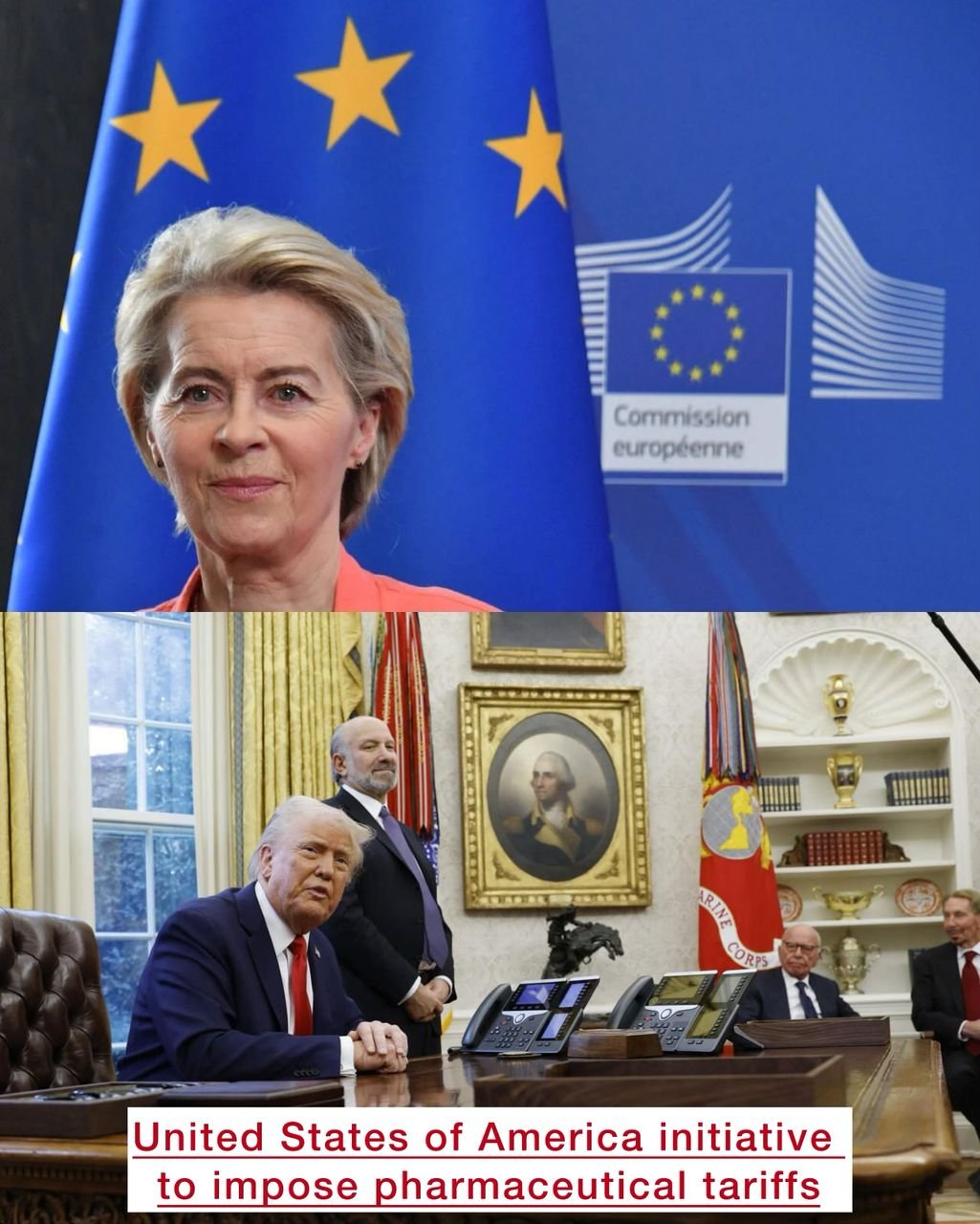A European Commission official has criticized a recent US investigation into pharmaceutical imports, describing it as an unjustified step toward potential tariffs that could harm both European and American healthcare systems. “This investigation is unjustified,” the official stated.
The Trump administration has launched an investigation into pharmaceutical imports under Section 232 of the Trade Expansion Act of 1962, a law that permits tariffs on imports that are considered to pose a threat to national security. This investigation was initiated earlier this month.
Although tariffs have not yet been implemented, EU officials are apprehensive that the investigation may serve as a precursor to trade action.
Elena Kamilarova, a trade official at the European Commission, stated at an event in Brussels, “We are not in agreement with this investigation.” “We are opposed to the tool and its concept, which is to view pharmaceutical imports as potential national security threats.”

Pharmaceutical companies on both sides of the Atlantic have expressed concern regarding the potential repercussions of US tariffs, including the potential for increased drug prices and disruptions to critical global supply chains.
These concerns are especially pressing for Ireland, which is the location of significant manufacturing operations for American companies including Eli Lilly, Johnson & Johnson, and Pfizer.. Other significant exporters include Belgium, Denmark, and Germany.
Pharmaceuticals were the most significant EU export to the United States in 2024, with a value of $127 billion (€117 billion). However, this figure is currently at risk as a result of the ongoing investigation. The flow of pharmaceuticals is currently at risk of disruption, which could have severe repercussions for both patients and businesses.
Thibaut L’Ortye, a representative of the American Chamber of Commerce in the EU, expressed apprehension regarding the investigation, asserting that its launch was not backed by US businesses and could potentially strain the already precarious transatlantic trade relationship.
L’Ortye stated at the European Policy Event on critical medicines that US and EU interests are aligned in the pharmaceutical sector, despite the challenges it faces, particularly in the area of addressing supply chain vulnerabilities.
“You have a recognition on both sides of the Atlantic that you need to be considering vulnerabilities and supply chains,” he continued.
The EU has warned that any move toward tariffs could undermine access to critical medications, lead to shortages, and increase healthcare costs on both continents.
A new report, which was commissioned by the industry’s US trade group and obtained by Reuters, predicts that a 25% tariff on pharmaceutical imports would result in a roughly $51 billion annual increase in the cost of drugs in the United States.
The analysis, which was conducted by Ernst & Young, anticipates that the cost of US drugs could increase by as much as 12.9% if it is passed on to consumers.
In 2023, the United States imported $203 billion in pharmaceutical products, with 73% of these products originating from Europe, specifically Ireland, Germany, and Switzerland. In the same year, the total sales of finished pharmaceuticals in the United States exceeded $393 billion.
The Commission’s Kamilarova stated, “European generic companies for once actually play quite a strong role in addressing shortages in the US. The US has more shortages than we do and a higher dependence on suppliers in Asia, especially active pharmaceutical ingredients (APIs) suppliers.”
Approximately 80% of Washington’s active pharmaceutical ingredients (APIs) are sourced from the EU, India, and China. Pharmaceuticals were the most significant import from the EU to the United States in 2024, with semaglutide, a critical ingredient in numerous weight-loss medications, accounting for $127 billion (€117 billion).
Leave a Reply